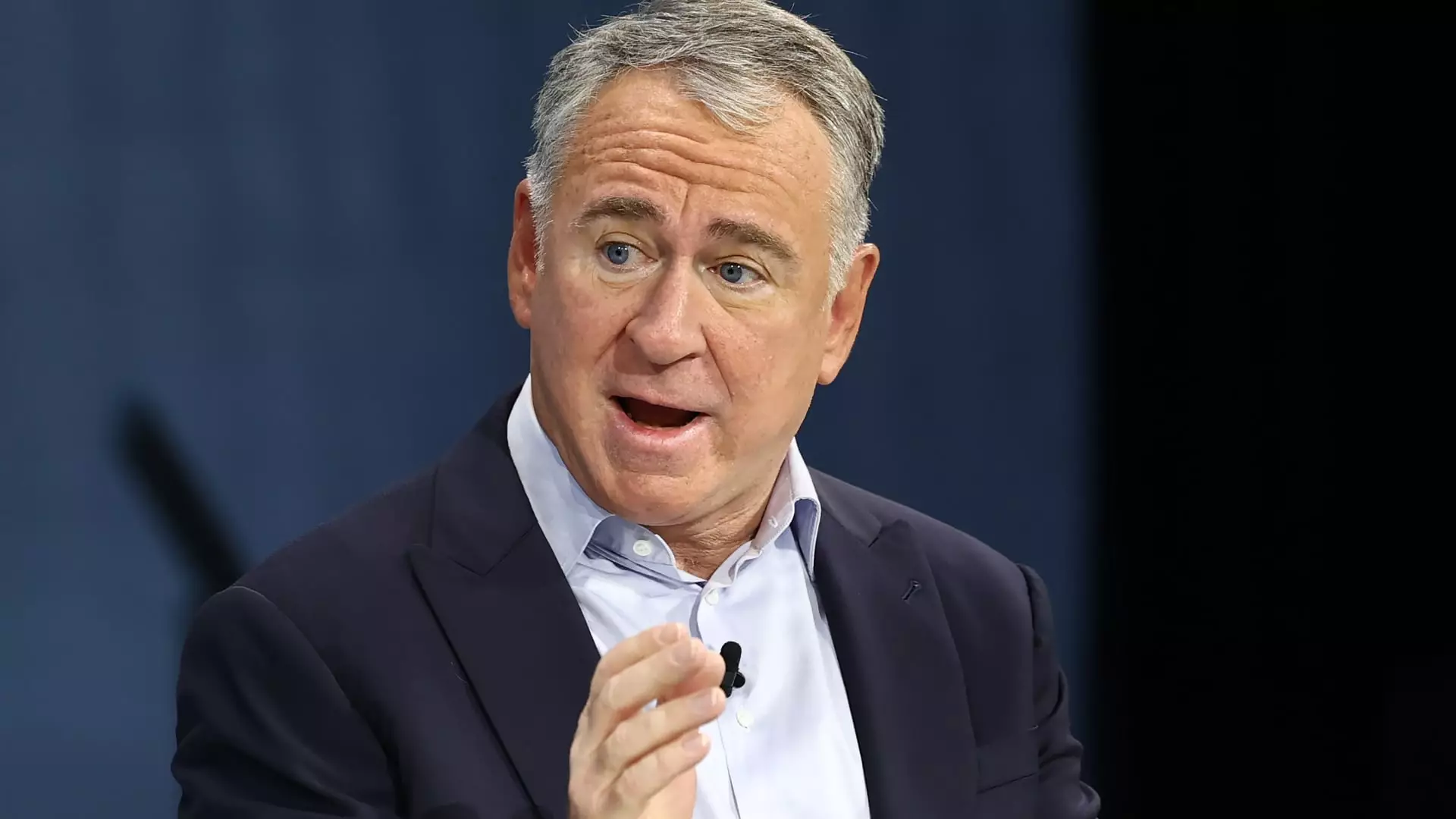Ken Griffin, CEO of Citadel, has recently voiced his concerns regarding the repercussions of aggressive trade policies under President Donald Trump’s administration. Speaking at the UBS Financial Services Conference in Key Biscayne, Florida, Griffin’s remarks highlight a deep unease among business leaders concerning the trajectory of U.S. trade relations. He underscored the damage already inflicted by what he referred to as “bombastic rhetoric,” suggesting that such an approach could fundamentally alter perceptions of the United States as a reliable trading partner.
Griffin’s critique came on the heels of President Trump’s decision to implement a 25% tariff on steel and aluminum imports—a move that has sparked debate among economists and industry leaders. The tariffs, along with a 10% duty placed on all Chinese imports, create an unpredictable environment for those who rely on international trade. According to Griffin, this unpredictability is detrimental, particularly for multinational companies that require a stable and clear framework to make long-term investment decisions. He emphasized that when businesses cannot forecast the future landscape due to shifting tariffs and trade agreements, they will likely delay or avoid significant capital investments, which could lead to stagnation in economic development.
Impact on Long-Term Planning
The uncertainty prompted by such trade tactics raises critical questions about the ability of corporations to plan for the future. Griffin noted that prolonged instability could adversely affect investments that require long lead times, particularly in the manufacturing sector where supply chains are often global and complex. He pointed out that when executives perceive the U.S. as an unreliable partner, they may hesitate to allocate resources toward growth in a country that previously represented a bedrock of economic stability.
Moreover, Griffin’s insights extend to the concept of crony capitalism—a situation where businesses and government officials form close, mutually beneficial relationships, often undermining competitive fairness in the market. This system can emerge as a byproduct of protectionist policies, where tariffs selectively benefit specific industries or companies at the expense of others. Such arrangements can inhibit innovation and economic dynamism by stifling competition and rewarding inefficiency.
A Call for Calm in Trade Rhetoric
Ken Griffin’s commentary serves as both a warning and a plea for more measured discourse in trade policy. As trade tensions escalate, the need for informed discussions that promote stability and predictability becomes ever more critical. The broader implications of aggressive trade measures not only affect immediate markets but also have lasting impacts on multinational investments and the overall economy. For the U.S. to maintain its position as a leading global economic power, a strategy that fosters cooperation rather than conflict may be essential. In a world where businesses thrive on consistency, it is vital that rhetoric aligns with the principles of collaboration to support sustainable growth.

